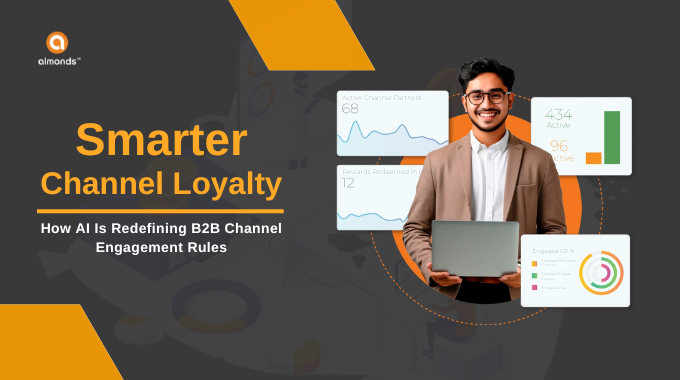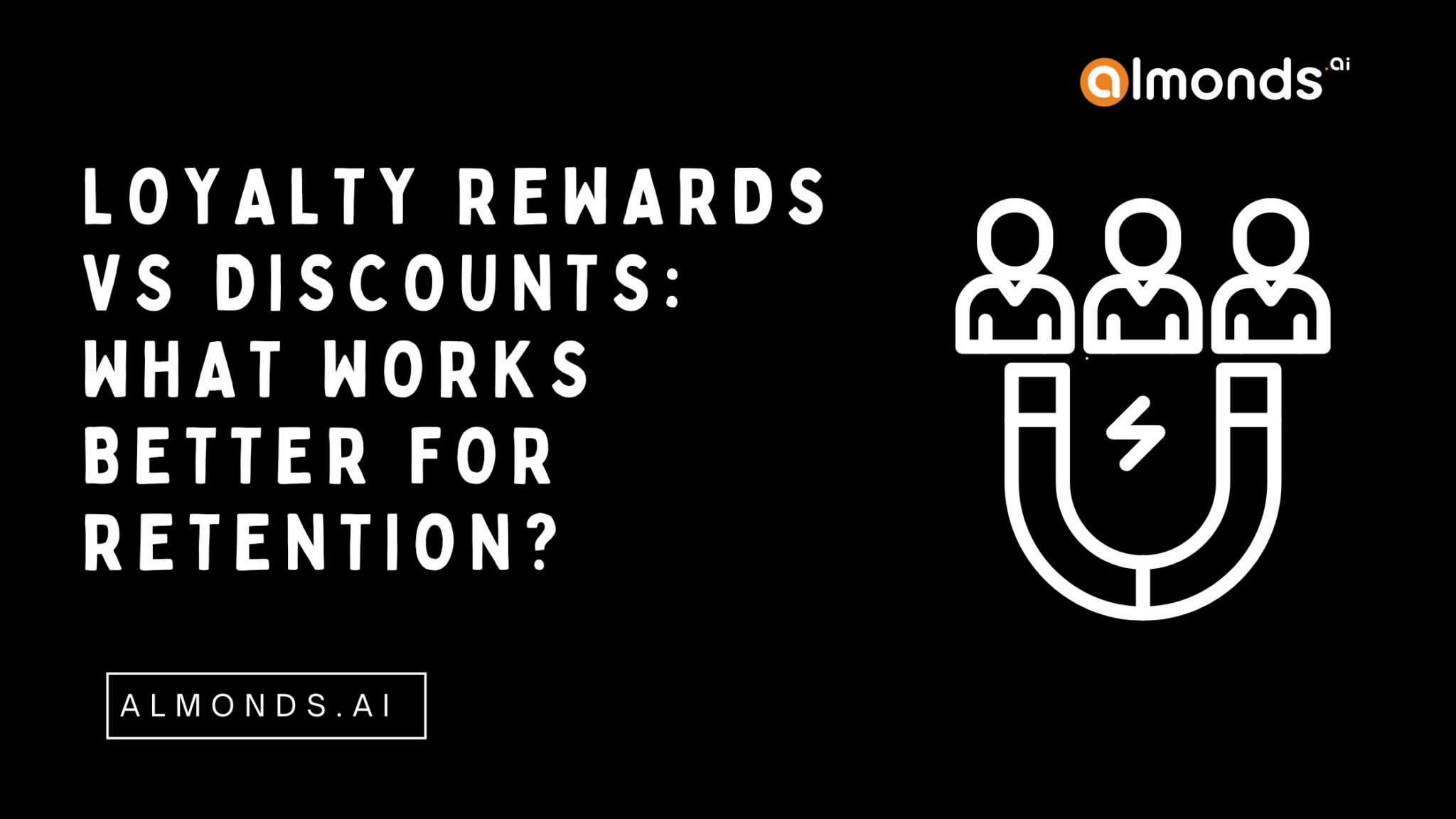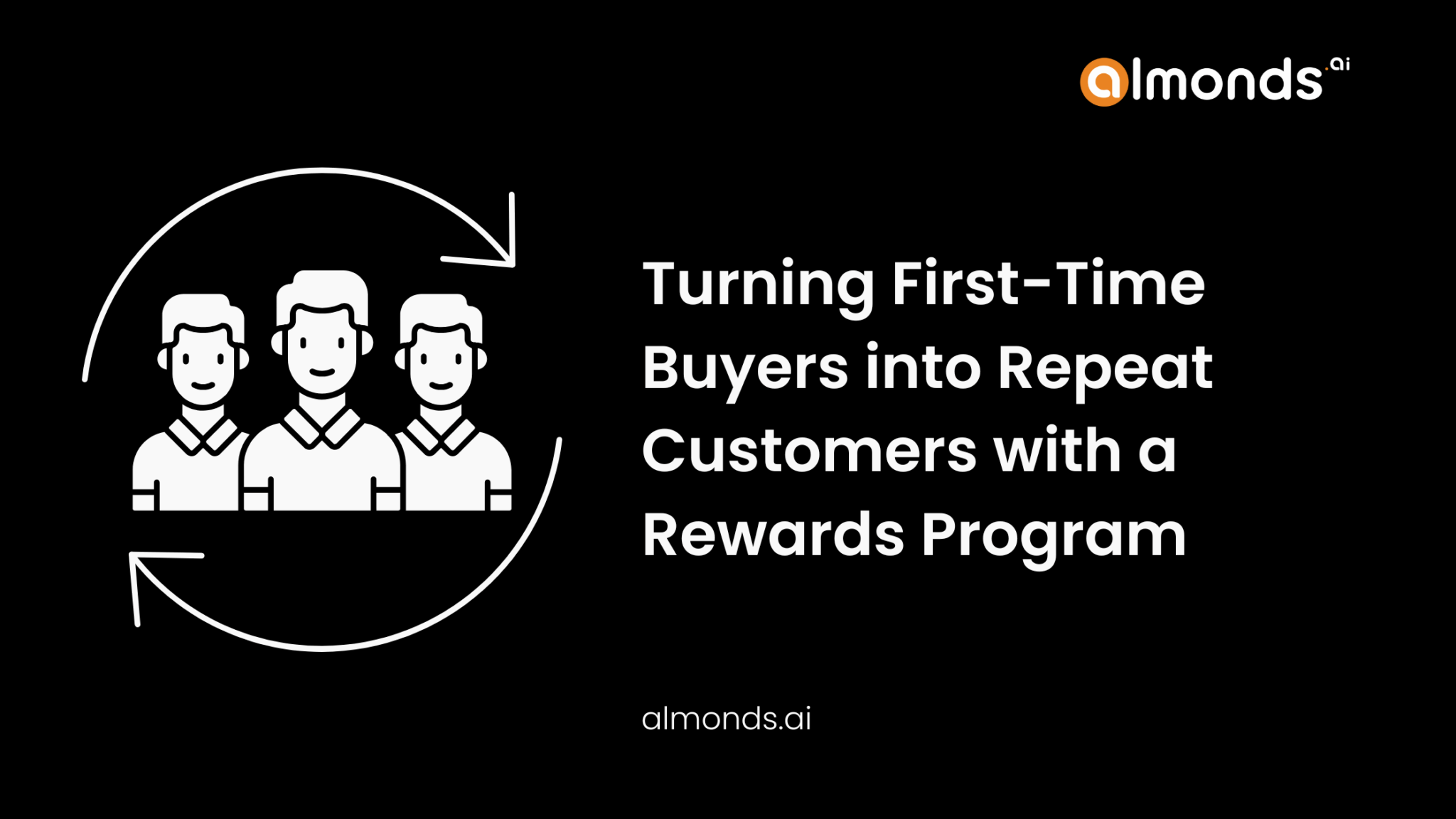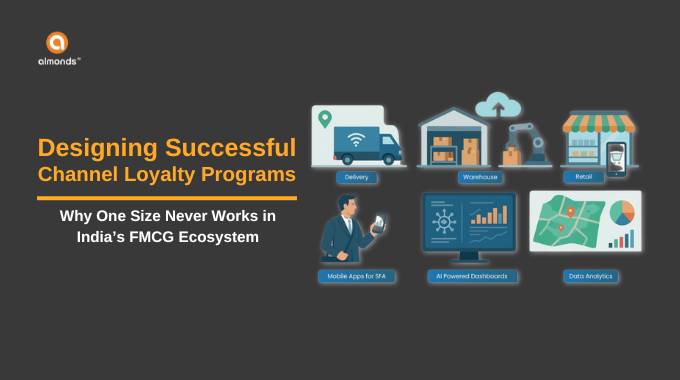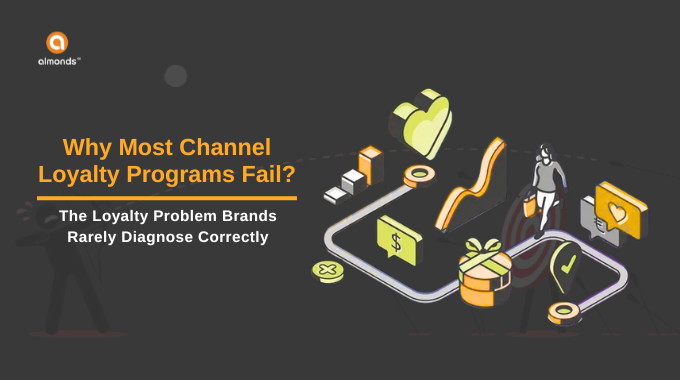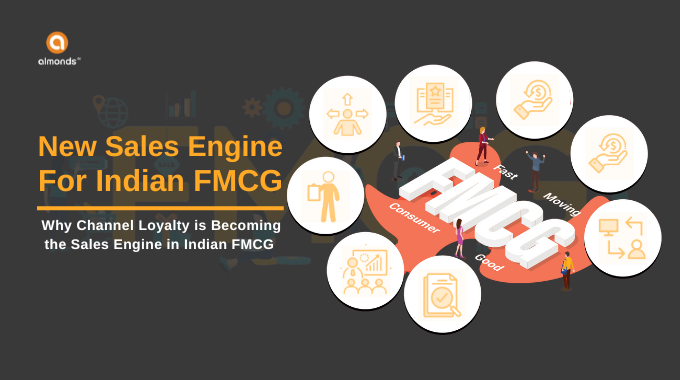Artificial intelligence isn’t just reshaping how consumers shop. It’s redefining how businesses build trust, engagement, and loyalty across their channel networks.
A recent 2025 Deloitte study found a strong positive correlation between AI adoption and B2B channel partner retention, showing that companies using AI-powered engagement systems outperform others by up to 35% in partner satisfaction and repeat transactions.
In short, AI is no longer a futuristic idea in channel loyalty; it’s the invisible engine powering it.
The 3 Ps of AI-Driven Channel Loyalty
Across industries, from automotive to consumer electronics, B2B loyalty programs are entering a new phase of intelligence. AI doesn’t just automate; it learns, anticipates, and enhances every interaction between brands and their channel partners.
The framework defining this new era is built on three pillars:
- Personalization (AI enables relevance)
- Prediction (AI enables anticipation)
- Performance (AI enables trust and reliability)
Let’s break them down.
1. Personalization
Relevance Builds Relationships
AI-driven personalization has transformed how brands engage with retailers, mechanics, and distributors.
Unlike traditional programs that rely on static tiers or fixed-point systems, AI analyzes behavior, purchase trends, redemption habits, regional preferences, to recommend incentives that truly resonate.
For instance, an AI engine might notice a retailer’s interest in high-margin SKUs and automatically suggest a targeted reward or bonus on similar products. Another might learn a distributor’s buying rhythm and adjust incentive frequency accordingly.
This level of adaptive channel partner engagement explains why companies using AI personalization see up to 40% higher participation rates in their channel loyalty programs, as reported by Salesforce in its 2025 B2B Engagement Index.
Personalization, when done right, feels less like marketing and more like recognition.
2. Prediction
Anticipating Partner Behavior Before It Happens
AI enables loyalty programs to move from reactive management to predictive action.
In traditional setups, brands act after sales drop or when partners stop participating. With predictive AI, early signs of disengagement, fewer logins, delayed invoice uploads, slower redemptions, are flagged automatically.
The system then triggers relevant interventions, perhaps a time-sensitive challenge, a double-point campaign, or a personalized WhatsApp reminder.
The key lies in micro-pattern detection, subtle behavioral cues that humans might miss but AI interprets instantly. Companies using predictive loyalty systems report a 25–30% improvement in partner retention and a measurable lift in cross-category sales.
It’s like having a virtual loyalty manager who knows when to re-energize your network before it drifts away.
3. Performance
Building Trust Through Speed and Reliability
Performance in channel loyalty isn’t about how flashy a dashboard looks. It’s about accuracy, consistency, and transparency.
AI ensures that every point earned, invoice validated, and reward redeemed is tracked without delay or error. Machine learning models identify duplicate scans, fraudulent uploads, or unusual redemption patterns, protecting both the brand and the partner ecosystem.
According to Gartner’s 2025 Loyalty Technology Review, AI-based validation reduces claim processing time by up to 60% and increases redemption satisfaction by 35%.
Moreover, AI chatbots and virtual assistants now handle routine support, from “Where’s my reward?” to “How many points do I have?”, offering partners instant clarity without human lag.
This is how AI transforms operational efficiency into emotional trust.
Beyond Transactions
The Feedback Loop of Intelligent Loyalty
AI doesn’t just optimize loyalty, it makes it self-improving.
Each partner interaction becomes a data point, feeding back into the system to refine future offers, predict better behaviors, and personalize with higher accuracy.
This feedback loop creates what experts call a living loyalty ecosystem, one that evolves alongside the network it serves.
Over time, AI builds a sense of reliability and recognition that partners begin to associate directly with the brand. Loyalty stops being transactional and starts becoming habitual.
The Human Side of Artificial Intelligence
Despite all the automation, AI-based loyalty still revolves around human motivation, recognition, progress, and belonging.
When a mechanic unlocks a milestone badge or a retailer sees their leaderboard rank climb in real time, it triggers the same sense of accomplishment that keeps credit card users checking their reward status.
That emotional connection, the mix of pride and progress, remains in the heart of loyalty. AI just amplifies it at scale.
A Glimpse into the Future
All these capabilities converge in next-generation ecosystems like Channelverse by Almonds Ai, designed for B2B brands managing complex partner networks.
It combines the 3Ps; Personalization, Prediction, and Performance, with gamification, analytics, and sustainability-linked rewards. Partners don’t just earn; they learn, grow, and connect within a single ecosystem that evolves with them.
From automotive dealers to FMCG retailers, Channelverse is proving that loyalty isn’t about transactions anymore, it’s about intelligent relationships powered by AI.
Final Thought
Artificial intelligence isn’t replacing loyalty programs; it’s refining them. It creates a feedback loop between behavior and reward, turning every interaction into a learning event.
The result is a smarter, faster, and more human version of loyalty, one where personalization builds relevance, prediction builds retention, and performance builds trust. And for brands ready to move beyond points and prizes, AI is already showing the way.
